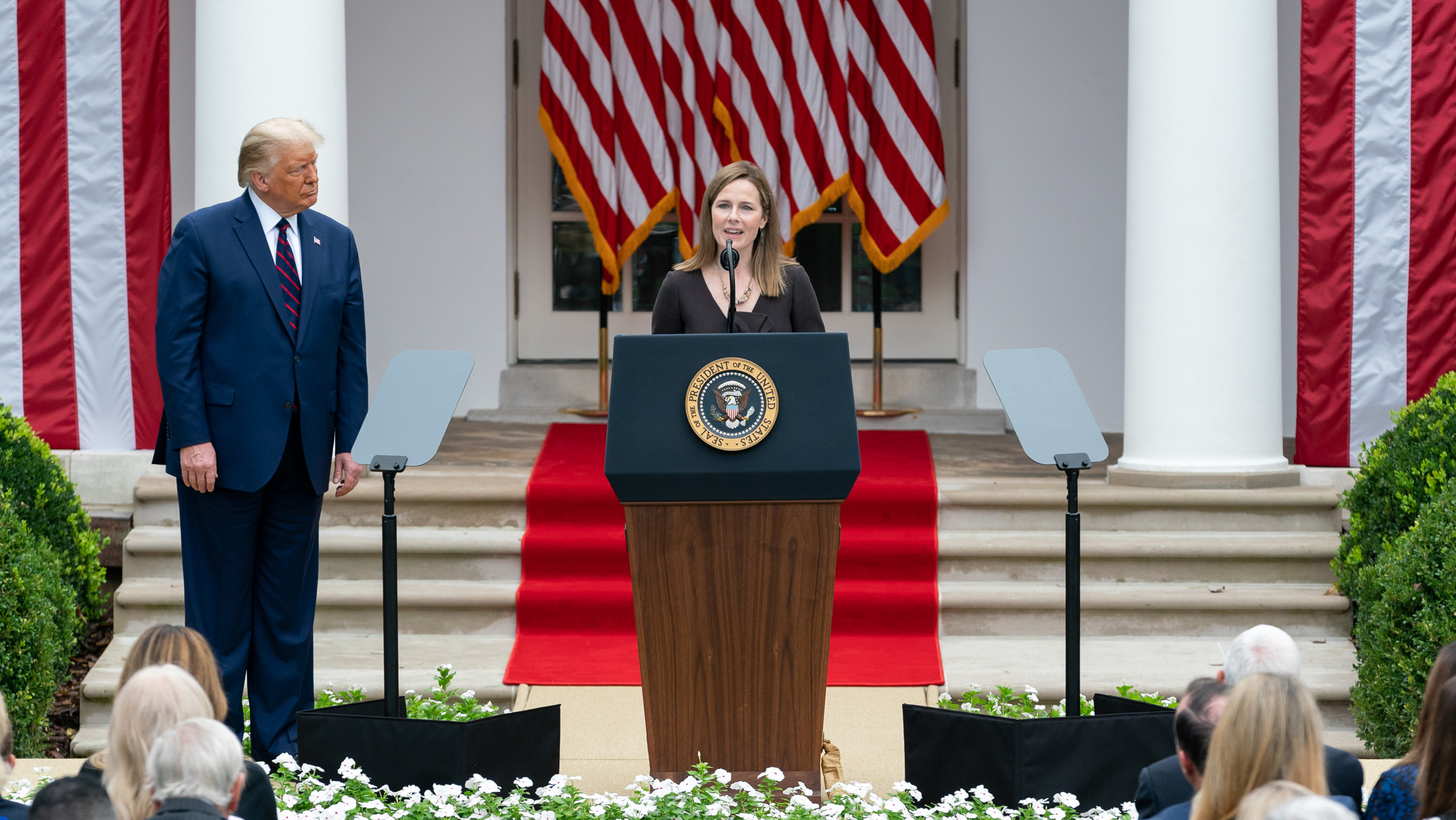Barrett Confirmed to Supreme Court
Senate vote is 52-48

The smarter way to stay on top of the streaming and OTT industry. Sign up below.
You are now subscribed
Your newsletter sign-up was successful
The Senate has voted 52 to 48 Monday (Oct. 26) to confirm the fifth woman to the Supreme Court, Judge Amy Coney Barrett, and the second nominee of the Republican President.
That came after 30 hours of debate in which Democrats painted her as a threat to various rights and Republicans as a model jurist.
Barrett will be on the High Court when it considers the appeal by broadcasters and the FCC of a lower court's rejection of the FCC's latest attempt to deregulate broadcast ownership, a case the court agreed earlier this month to hear.
Barrett, who has expressed reservations about courts ceding too much power to regulatory agencies, could well help shift the Supreme Court’s view of how much deference to give decisions by the Federal Communications Commission.
The doctrine of Chevron deference, established by the Supreme Court in the 1984 case of Chevron U.S.A., Inc. vs. Natural Resources Defense Council, established the legal test for when courts should defer to the expertise of a regulatory agency.
Andrew Jay Schwartzman, a veteran watcher and participant in federal appeals, concedes there is little track record to go on, but said, looking at her general philosophy, “I would speculate that she would likely be willing to consider modifying or overruling Chevron.
Chevron doctrine was central to the Supreme Court’s 2005 decision in NCTA v. Brand X Internet Services, which upheld the FCC’s authority to classify broadband as an information service not subject to mandatory access common-carrier regulations.
The smarter way to stay on top of the streaming and OTT industry. Sign up below.
In Brand X, the High Court ruled that Chevron deference trumped an appeals court decision because that appeals court had found the statute vague and, in such cases, the court should have deferred to the federal agency's subject matter expertise, in this case the FCC.
That finding has left different FCCs to define and redefine internet access, and has prompted calls for Congress to step in and do its duty to clarify the statute.
Barrett could also be a factor if the Supremes agree to weigh in on the meaning of Section 230, the hot-button provision that grants social media sites immunity from civil liability for most third-party content on their sites.
During her confirmation hearing Sen. Josh Hawley (R-Mo.) tried to get Judge Barrett to weigh in on the section, citing Thomas’s comments.
Hawley said that the courts, at the behest of Big Tech, had dramatically rewritten the section, including changing the liability standards and the distinction between publisher and distributor liability, and extending it to product defect claims.
Barrett said she had not ruled on a Section 230 case and so could not comment, but when asked, in general, what she thought the “danger” was of courts departing from statutory text and substituting their own judgment, she did weigh in.
Related: Clarence Thomas Lays Down Sec. 230 Marker
Barrett said that without respect to the specific section, the danger of courts going beyond the language of statute was that it “subverted the will of the people.” She said that since judges are not elected and serve for a lifetime, if they misconstrue or bend statutes to their idea of what would be good public policy, then it deprives the people of the chance to express the policies that they want through the democratic process.
Hawley said he was convinced that was what had happened with the courts and Section 230.
Barrett has also said she will keep an open mind on allowing cameras in the High Court, but her mentor, the late Justice and judicial originalist Antonin Scalia, was strongly against them.
Contributing editor John Eggerton has been an editor and/or writer on media regulation, legislation and policy for over four decades, including covering the FCC, FTC, Congress, the major media trade associations, and the federal courts. In addition to Multichannel News and Broadcasting + Cable, his work has appeared in Radio World, TV Technology, TV Fax, This Week in Consumer Electronics, Variety and the Encyclopedia Britannica.

